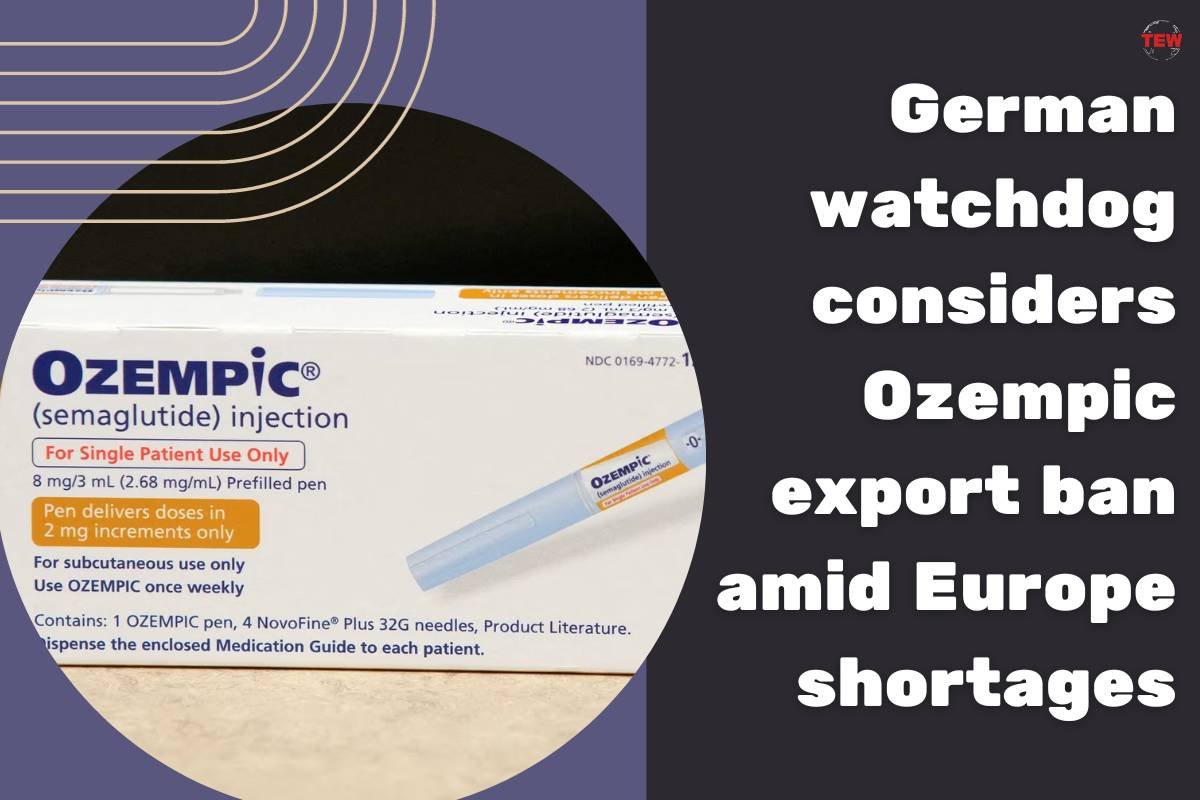The German regulator, BfArM, is contemplating a potential Ozempic export ban due to a shortage of diabetes drugs in European health systems. Ozempic, manufactured by Novo Nordisk, has been in high demand for its weight-loss benefits. The drug’s use for weight loss has led to shortages across Europe, prompting temporary bans in countries like Britain and Belgium to ensure availability for diabetic patients.
Novo Nordisk’s introduction of the anti-obesity drug Wegovy, a higher-dose version of Ozempic, in several European countries has not alleviated the demand for Ozempic. Production bottlenecks have limited the availability of Wegovy, contributing to the ongoing craze for Ozempic. While Ozempic is officially approved to treat type 2 diabetes, it has been increasingly prescribed “off-label” for weight loss, as it shares the same active ingredient as the popular but scarce Wegovy.
Aims to ensure an adequate supply remains
BfArM is in discussions with lawmakers to address the situation, and if current measures and public messaging prove ineffective, the regulator may consider imposing an export ban. This measure aims to ensure an adequate supply remains in the country for patients who need it. BfArM President Karl Broich emphasized that Ozempic was being shipped to other European countries and the United States.
Novo Nordisk, which has allocated $6 billion to boost production in Denmark, recently stated that the industry is far from meeting the global demand for weight-loss drugs. The introduction of Eli Lilly’s tirzepatide (Mounjaro), with even greater weight-loss potential than Wegovy, adds to the challenges of satisfying the increasing demand.
Broich highlighted that some Ozempic export ban because it is more affordable in certain countries, and the demand is primarily driven by its off-label use for weight loss. He cautioned that export restrictions face legal hurdles due to the European Union’s single market regulations.
EU Countries imposed Ozempic export ban
While the German Association of Drug Wholesale Distributors PHAGRO suggested there is no certainty that exports are causing shortages, the lobby group Affordable Medicines Europe argued that exports are not the root cause. The group recommended exploring measures to regulate off-label prescriptions instead of resorting to export bans.
BfArM reiterated a call for physicians to prescribe drugs like Ozempic for their approved use against diabetes and urged pharmacies not to fill prescriptions unless diabetes is specified as the indication. Several EU countries, including Austria, France, Greece, and the Czech Republic, have already imposed export bans on Ozempic, while others have regulations in place that make exporting the drug difficult.





